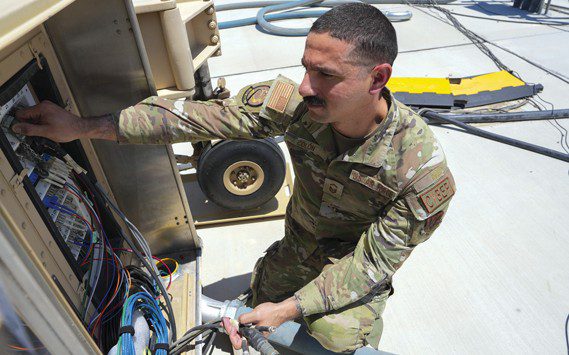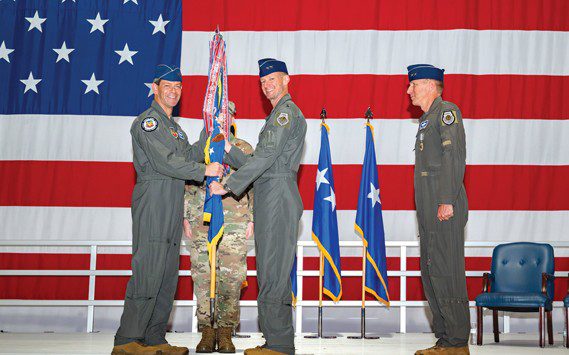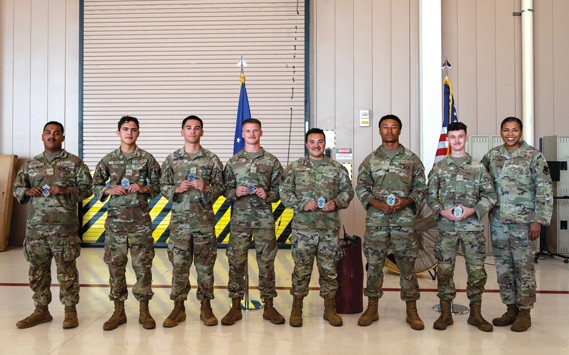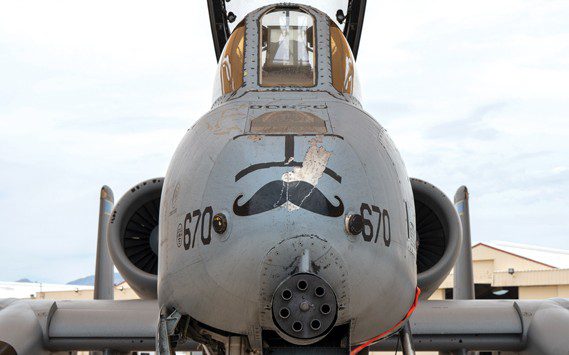The Normandy Invasion of World War II to liberate Europe resulted in inevitable deaths for thousands of military members.
By the time Allied forces liberated Paris, more than 200,000 coalition forces would be dead, wounded or missing.
It is not controversial to believe that there are a few reasons behind such enormous sacrifices in blood. So, this piece asks the reader to reflect on one of those critical sacrificial elements, the Profession of Arms.
Understanding it is crucial to good order and discipline in the military.
The Air Force Handbook 1 defines the Profession of Arms as the ability to use lethal military force and the willingness of service members to sacrifice their lives in defense of the United States. In addition, values, standards, expertise and ethics guide the Profession of Arms.
Those elements are vital to how the military recruits, trains, develops and employs forces. It comes down to having capable military forces to do the mission. Whatever the mission might be, trained personnel will execute it. To do that, they must follow lawful orders to kill or surrender their lives.
The statement, “I do solemnly swear that I will support and defend the Constitution of the United States against all enemies, foreign and domestic; that I will bear true faith and allegiance to the same; and that I will obey the orders of the President of the United States and the orders of the officers appointed over me, according to regulations and the Uniform Code of Military Justice. So help me, God.” is, in its simplest form, the Profession of Arms.
The Normandy landings are instructive once more. The U.S. 1st Division landed at Omaha Beach to German machine gunners shooting at them. By daybreak, they would suffer 2,000 casualties. Those service members charged into bullets gallantly. So, here too, it seems plausible to infer that the Profession of Arms was a factor in driving those heroes to lay their lives in defense of a higher value. They followed their orders.
In February 1945, U.S. forces battled to capture a height at Iwo Jima. They termed the area “Meatgrinder Hill,” a name that conjures the horror of the fight. Despite this, the Marines took the top of the hill, no matter the cost. When the fighting was over, the U.S. suffered roughly 28,000 casualties. Nevertheless, the Battle of Iwo Jima produced the iconic photo of the U.S. Marines raising the American flag over Mount Suribachi. Here too, we see the U.S. military upholding its sacred pledge.
The U.S. military showcased its professionalism once more after the 9/11 attacks. Service members followed their orders again into Afghanistan in 2001. Consequently, the United States-led coalition in Afghanistan toppled the Taliban government 98 days after Sept. 11, 2001, and killed Osama Bin Laden a few years later. The Afghan war spanned another 20 years of fighting that saw more American military casualties. Yet, brave U.S. service members answered our nation’s call and served gallantly. They followed their orders.
No matter how we describe the Profession of Arms, we saw its essence in the Allied forces landing at Normandy, in the bravery of the Marines at Iwo Jima in raising the American flag at Mount Suribachi and in the poise of Air Mobility Command’s pilots taking off on a C-17 aircraft from Kabul airfield with hundreds of Afghan refugees on the aircraft’s wheels and wings. Therefore, as we reflect on what it means to belong in the Profession of Arms, we should reconcile it with our Air Force core values. It is essential that we do because it entails integrity, commitment and excellence. It is our military legacy.
A look at America’s wars from its inception revealed courage, liberation and sacrifice. Some of our heroes, our forbearers, gave the ultimate devotion to the service of our country. This commitment was evident again in the final days of the U.S. withdrawal from Afghanistan. The U.S. military followed orders. In the end, our past and present heights demand that we maintain the Profession of Arms to preserve the American way of life: A democratic nation that offers the American dream to those who dare to dream. Its promise rests on the shoulders of the U.S. military. It is a powerful force for good and freedom around the world.












